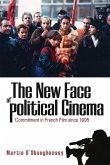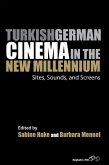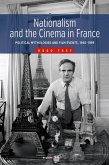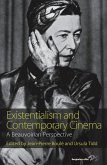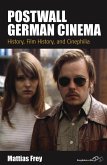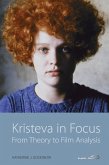Standard Hollywood narrative movies prescribe linear narratives that cue the viewer to expect predictable outcomes and adopt a closed state of mind. There are, however, a small number of movies that, through the presentation of alternate narrative paths, open the mind to thoughts of choice and possibility. Through the study of several key movies for which this concept is central, such as Sliding Doors, Run Lola Run, Inglourious Basterds, and Rashomon, Nitzan Ben Shaul examines the causes and implications of optional thinking and how these movies allow for more open and creative possibilities. This book examines the methods by which standard narrative movies close down thinking processes and deliver easy pleasures to the viewer whilst demonstrating that this is not the only possibility and that optional thinking can be both stimulating and rewarding.
Dieser Download kann aus rechtlichen Gründen nur mit Rechnungsadresse in A, D ausgeliefert werden.



